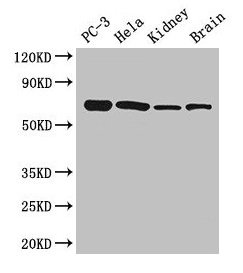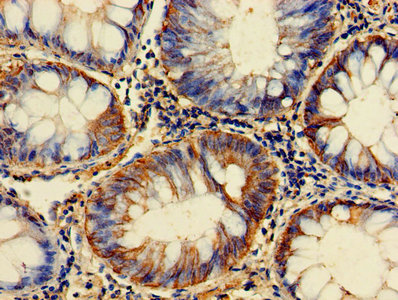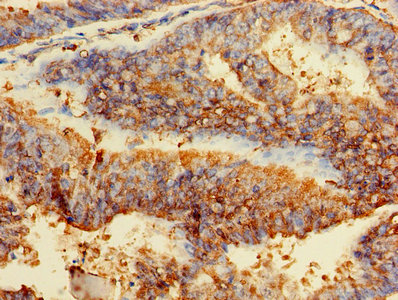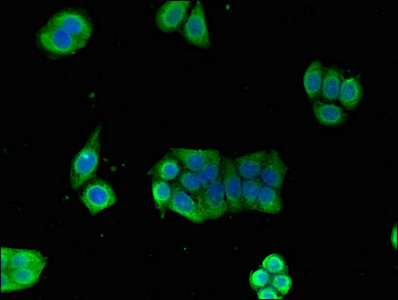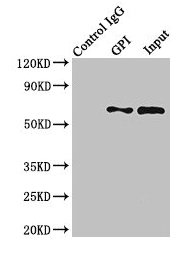Full Product Name
Rabbit anti-Homo sapiens (Human) GPI Polyclonal antibody
Alternative Names
AMF antibody; Aurocrine motility factor antibody; Autocrine motility factor antibody; DKFZp686C13233 antibody; EC 5.3.1.9 antibody; G6PI_HUMAN antibody; Glucose phosphate isomerase antibody; Glucose-6-phosphate isomerase antibody; GNPI antibody; GPI antibody; Gpi1 antibody; Hexose monophosphate isomerase antibody; Hexosephosphate isomerase antibody; Neuroleukin antibody; NLK antibody; Oxoisomerase antibody; PGI antibody; PHI antibody; Phosphoglucose isomerase antibody; Phosphohexomutase antibody; Phosphohexose isomerase antibody; Phosphosaccharomutase antibody; SA 36 antibody; SA-36 antibody; SA36 antibody; Sperm antigen 36 antibody
Species Reactivity
Human, Mouse
Immunogen
Recombinant Human Glucose-6-phosphate isomerase protein (2-554AA)
Immunogen Species
Homo sapiens (Human)
Conjugate
Non-conjugated
The GPI Antibody (Product code: CSB-PA00367A0Rb) is Non-conjugated. For GPI Antibody with conjugates, please check the following table.
Available Conjugates
| Conjugate |
Product Code |
Product Name |
Application |
| HRP |
CSB-PA00367B0Rb |
GPI Antibody, HRP conjugated |
ELISA |
| FITC |
CSB-PA00367C0Rb |
GPI Antibody, FITC conjugated |
|
| Biotin |
CSB-PA00367D0Rb |
GPI Antibody, Biotin conjugated |
ELISA |
Purification Method
>95%, Protein G purified
Concentration
It differs from different batches. Please contact us to confirm it.
Buffer
Preservative: 0.03% Proclin 300
Constituents: 50% Glycerol, 0.01M PBS, PH 7.4
Tested Applications
ELISA, WB, IHC, IF, IP
Recommended Dilution
| Application |
Recommended Dilution |
| WB |
1:500-1:5000 |
| IHC |
1:20-1:200 |
| IF |
1:50-1:200 |
| IP |
1:200-1:2000 |
Storage
Upon receipt, store at -20°C or -80°C. Avoid repeated freeze.
Lead Time
Basically, we can dispatch the products out in 1-3 working days after receiving your orders. Delivery time maybe differs from different purchasing way or location, please kindly consult your local distributors for specific delivery time.
Usage
For Research Use Only. Not for use in diagnostic or therapeutic procedures.

